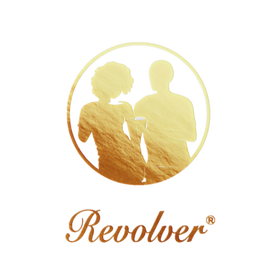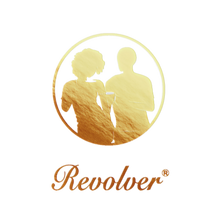Our Decaf Coffee Bags: the Swiss Water Secret
Coffee bags have been around for decades, but only now are they becoming a hit. Coffee bags offer the perfect blend of caffeine and convenience, not to mention the fulsome flavour of fresh ground coffee. But there can be such a thing as too convenient, and in getting through the daily grind of modern life, and working from home, many of us are consuming too much caffeine.
Here in the UK, we consume around 98 million cups per day. The majority of this is frozen instant coffee (not to be confused with the fresh ground coffee you find in coffee bags) which is certainly convenient but not exactly bursting with taste. Your average mug of Arabica coffee contains 100mg of caffeine, while a decaf cup of coffee has just 3-15mg. And so committed coffee drinkers who don’t want to sacrifice their sleep would do well to try decaf coffee bags.
We’re here to spill the beans on what sets Revolver World’s coffee bags apart.
- A Short History of Decaffeinated Coffee
- What is the Swiss Water Method?
- Revolver and the Swiss Coffee Method
- About Revolver World's Decaf Coffee Bags
A Short History of Decaffeinated Coffee
Coffee decaffeination originated in Germany in 1903. Like most great discoveries, it was entirely accidental, arising when a German coffee merchant by the name of Ludvig Roselius noticed that one of his freight shipments of coffee beans had been soaked by seawater en route to Europe, losing their caffeine content but retaining their taste.
Roselius developed a decaffeination process of applying a brine and benzene solution to coffee beans, which he patented in 1906 under the name Kaffee Hagg. Roselius was motivated by his belief that excessive coffee consumption had poisoned his father. Little could he have known that benzene is a human carcinogen. Thankfully, Roselius’ method is no longer in use.
There are now two types of processes used for decaffeination: solvent-based and non-solvent-based. Solvent-based processes account for around 70% of decaffeinated coffee production and involve soaking coffee beans in chemicals like methylene chloride or ethyl acetate. Non-solvent-based processes avoid the use of chemicals, relying instead on the natural processes of solubility and osmosis.
Revolver uses the latter for its decaf coffee bags: specifically the Swiss Water Method.
What is the Swiss Water Method
The Swiss Water method is the name given to a chemical-free, natural process of removing 99.9% of caffeine from coffee beans. The process is simple:
- Coffee beans are cleaned and soaked in very hot water, extracting all the soluble flavour components and caffeine.
- These flavourless beans are discarded.
- The flavour-charged water passes through a carbon filter, measured to catch the larger caffeine molecules while allowing flavour and oil molecules to pass through. This creates two tanks: one with flavourless, decaffeinated beans; another with flavour-rich water (known as Green Coffee Extract).
- Another batch of quality green coffee beans is soaked in water in order to expand the beans’ size for caffeine extraction.
- These beans are then immersed in the flavour-rich, caffeine-free water. Since the concentration of soluble flavour components is the same in the beans as it is in the water, only the caffeine is extracted.
- The flavour charged water passes through a carbon filter, trapping the caffeine molecules and allowing the flavour components to pass through freely. This process lasts about eight hours.
Pioneered in Switzerland in 1933, the method first became commercially viable in 1980. In 1988, Swiss Water Decaffeinated Coffee Inc. opened its plant in Vancouver, finally bringing 100% naturally decaffeinated coffee to market. It is used almost exclusively for decaffeinating organic coffee beans.
Revolver's Decaf Coffee Bags are Swiss Water Certified
Swiss Water coffee is the healthiest decaf coffee for consumption. It retains the potent antioxidants and rich flavour of caffeinated coffee while remaining free of the potentially harmful chemicals used in other decaffeination processes.
Revolver World’s unique coffee blend is processed at the new Swiss Water production centre in Vancouver, British Colombia. Our commitment to chemical-free production and fairtrade practices have also earned our coffee Fairtrade and Organic Soil Association certification.
About Revolver World's Decaf Coffee Bags
Our Swiss Water Decaffeinated Coffee Bags are bursting with all the benefits of coffee without causing the jittery side effects of caffeine. With our no-fuss coffee bags you can brew the perfect cup in a matter of minutes. (Check out our guide to how to brew with coffee bags)
We use 100% arabica coffee sourced from Peru. It is both organic and fairtrade and totally free from the harmful chemicals present in regular decaf coffee.
Once packed at our roastery, our coffee bags arrive at our storage depot in the UK within seven days. But while we pride ourselves on fast delivery, there’s no need to hurry. Because our coffee bags are made from bioweb and are individually foil-sealed, they will remain fresh for up to 24 months.
The best thing about our coffee is the taste. Our Swiss Water Decaf Coffee Bags bring you a well-balanced coffee with a great body and rich chocolatey flavours, finished with a nutty aftertaste.

